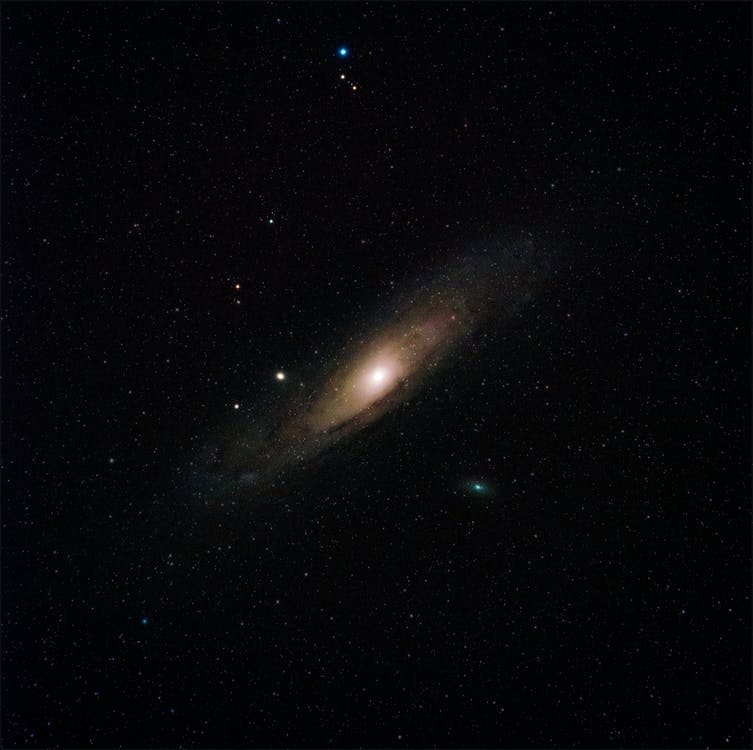The moment we open our eyes and get up every day, we will see the world around us full of material things, houses, quilts, furniture, buildings, cars, sunlight…
And the hustle and bustle of people on the street.
Everything we can perceive belongs to the material world. Essentially, the matter we see every day is the product of stars, the “nuclear waste” produced during the nuclear fusion process of stars. Stars produce all kinds of elements we need in the process of nuclear fusion, so the material I see every day is also called “stellar matter”.

Seeing this, you may think that our universe is matter, or that there is only matter (stellar matter) in our universe, and there can be no other matter.
For quite a long time, scientists also thought so. But it wasn’t until something peculiar happened that scientists made a major breakthrough in our understanding of the universe.
When scientists observed the motions of stars on the fringes of distant galaxies, they discovered a peculiar phenomenon that puzzled them. Normally, stars at the edge of a galaxy move very slowly, otherwise, they will be thrown out of the galaxy.
However, the study found that the stars at the edge move at an unusually fast speed. Computational scientists have calculated that at that speed, the stars should have been thrown out of the galaxy long ago. But in reality, the stars are not thrown out of the galaxy.
It made a point: there must be some unknown force pulling the stars.
Scientists don’t know what kind of force, so they named it “dark matter”. Through specific analysis, it is known that dark matter is much more than ordinary matter (stellar matter), about five times that of the ordinary matter!
This dark matter is like the glue in the universe, holding ordinary matter together and preventing it from falling apart.
The discovery of dark matter has shocked scientists, but even more incredible is yet to come.
A force more powerful than dark matter dominates the evolution of the universe, and it is dark energy.
Scientists have found that our universe has been accelerating its expansion. What kind of force is accelerating the expansion of the universe?
This force is dark energy. Like dark matter, it’s called “dark” energy because we don’t know what exactly this force is. Scientists speculate that dark energy is likely to be the void energy that is continuously derived. Most of the space in the universe is a vacuum, which means that dark energy occupies an absolute dominant position.
Scientists have also calculated the proportion of dark matter, dark energy, and ordinary matter in the universe.
Ordinary matter only accounts for about 5% of the entire universe, while dark matter and dark energy account for about 95%, of which dark matter accounts for 25%, and dark energy accounts for 70%!
The proportion of dark energy has reached a dominant level, which is why our universe is constantly accelerating its expansion. The mastermind behind all this is “dark energy”.
In fact, in the early days of the universe, dark energy was far less powerful than it is now when gravity (dark matter) was the most powerful force. After that, dark energy and gravity gradually moved toward equilibrium, and then dark energy began to dominate, causing the universe to begin to expand at an accelerated rate.
It is unimaginable that the matter we perceive every day accounts for so little in the universe. Dark matter and dark energy that we do not know are the dominant players behind it. They dominate the future evolution of the universe, and what we see in The material world can only passively follow.
What will happen in the future of the universe is beyond our control. It depends on the contest between dark energy and dark matter. The contest between the two is also related to the ultimate destiny of the universe!




I feel like we’re exploring less than 1% of the area
Humans are in the universe, outer space is simply too small